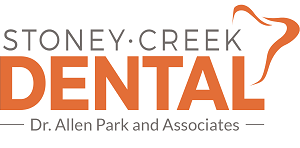
Posted on March 26, 2024
When it comes to oral health, we often attribute our dental issues to factors like diet, oral hygiene habits, and lifestyle choices. However, research suggests that genetics may also play a role in determining our susceptibility to various dental conditions. Understanding the impact of genetics on oral health can provide valuable insights into preventive measures and personalized dental care.
The Genetic Influence on Cavities
Cavities are caused primarily by bacteria feeding on sugars however, some genetic factors may make some individuals more prone to them. Some factors include:
- Enamel Structure: Genes play a crucial role in determining enamel structure. Strong enamel is better equipped to absorb vital minerals like fluoride and calcium, providing enhanced protection against cavity formation.
- Saliva Composition: Saliva composition, influenced by genetic polymorphisms, affects the presence of cavity-causing bacteria in the mouth. Variations in saliva production and composition can either promote or inhibit bacterial growth, impacting overall oral health.
- Tooth Shape and Alignment: Genetic factors also influence tooth shape and alignment. Crowded teeth can impede proper oral hygiene practices, making it easier for plaque to accumulate. Similarly, teeth with deep grooves provide hiding spots for bacteria, increasing the risk of cavities.
Risk Factors that You Can Control
While genetics play a significant role in cavity formation, the most serious risk factors are still generally within your control. Lifestyle choices and habits can exacerbate genetic predispositions, leading to increased susceptibility to cavities. Here are some factors to consider:
- Smoking: Smoking decreases saliva production, creating an environment conducive to bacterial growth and cavity formation. Smokers are at a higher risk of developing cavities due to the detrimental effects of tobacco on oral health.
- Dietary Habits: A diet high in sugars and starches fuels bacterial activity in the mouth, increasing the risk of cavities. Consistent snacking and sipping on sugary beverages prolong exposure to cavity-causing acids, contributing to dental decay.
- Oral Hygiene Practices: Neglecting regular dental check-ups and inadequate oral hygiene practices can exacerbate genetic predispositions to cavities. Regular dental examinations are crucial for early detection and intervention, helping to prevent cavities before they progress.
In short, while genetics may predispose individuals to cavities and other oral health issues, preventive measures and lifestyle modifications can mitigate these risks. Regular dental visits, healthy dietary choices, and diligent oral hygiene practices are essential components of maintaining optimal oral health, regardless of one’s genetics.
Personalized Dental Care
If you are someone who is genetically predisposed to certain oral health conditions, personalized dental care tailored to your genetics may help you maintain good oral health.
For example, individuals with a higher genetic risk of developing gum disease may benefit from more frequent dental cleanings and screenings to detect early signs of periodontal problems. Likewise, those prone to tooth decay may be advised to use fluoride treatments or dental sealants to strengthen and protect their enamel.
Contact Stoney Creek Dental today
If you believe you are genetically predisposed to certain dental issues, we can help. Contact Stoney Creek Dental today for an appointment with one of our dentists. We can discuss any issues you are facing with your oral health and recommend personalized care to help keep your smile looking and feeling its best.
